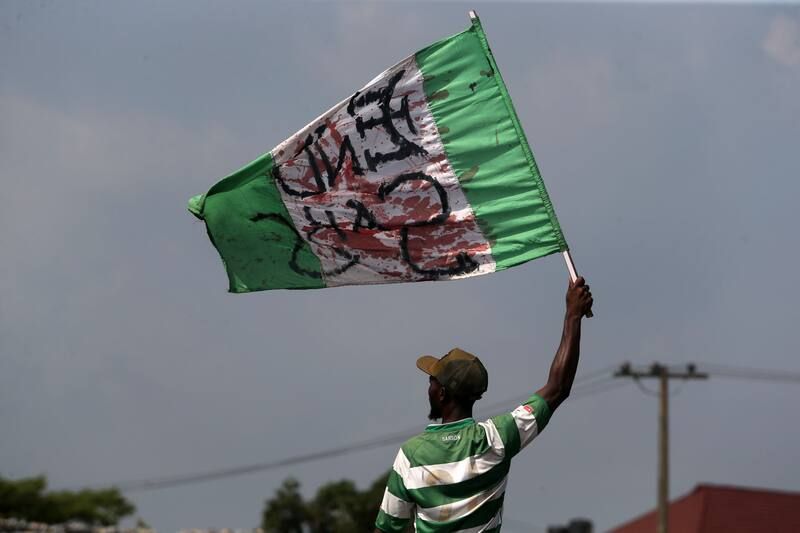
If there is one thing that unites a lot of Nigerians, it is hatred toward queer people. Religion is the basis for a good amount of this. Homophobic Nigerians are quick to tell you how the cities of Sodom and Gomorrah were destroyed because of homosexuality.
For the past several weeks, Nigerians have been protesting against police brutality, taking aim at a particularly violent police unit, the Special Anti-Robbery Squad, known as SARS. The protests have been some of the largest demonstrations in Nigeria in recent times. Taking to both the streets and social media, queer Nigerians are not just demanding the end of SARS but also taking great risks in letting Nigerians know that Queer Lives Matter, too, and that the movement should be inclusive for all.
In 2014, the Same-Sex Marriage Prohibition Act was signed into law by then-President Goodluck Jonathan. The law promised prison terms of up to 14 years and has been supported by both Muslim and Christian Nigerians. The law gave rise to increased homophobic violence in the country, including mob violence, extortion and sexual assault. Queer people are harassed by the police for having anything on them that makes the officer think they are queer. “They saw the pictures of two girls kissing in my phone and then they asked me if I was a lesbian”, said a friend of mine, recalling her ordeal with the police in the capital city of Abuja. “I told them that it was for a story I was working on. But they didn’t believe me so in order not to escalate the matter, I had to pay them a huge amount of money”.
The stories about police brutality against people based on their perceived sexuality are everywhere. Nigerian police have been known to literally hunt and arrest people just for being gay. In 2014, the BBC reported on how forces hunted down gay men in Bauchi state. After a local newspaper claimed that homosexuals were forming an association and published a list of names, the Islamic police, known as the Hisbah, began encouraging pastors, imams and community members to help them track down the individuals. Several were unlawfully arrested.
Earlier this year, reports circulated that police in Benin City went on a similar witch hunt to try to find gay men. According to the LGBTQ website KitoDiaries, police were making the rounds in Benin City’s gay community and pressuring men to share the contact details of others.
Many queer people in Nigeria are reluctant to share their stories of victimization, fearing that others will blame them once they find out that they are queer. Until several weeks ago, queer Nigerians would air their grievances on the Internet. Social media created an escape for a lot of queers who are both in and out of the closet.
But now with the #EndSARS protests, queer Nigerians have been out in the open on the front lines. Groups have started a safe house for Nigerian queer protesters and have helped pay medical bills for those who end up injured. A few days ago, I spoke with my friend who took part in protests in Lagos with placards that bore the Queer Lives Matter hashtag. She said: “I am part of history. Not just pertaining to the SARS movement, but I am among those who defied queerphobia and joined people like me in the streets, letting the others know that we are going to be here for a long time”. Still, people tried to be violent toward the protesters, screaming that homosexuality was still illegal in the country. Nevertheless, queers went out and showed Nigerians that there are queer people around them.
The #EndSARS movement is a significant moment in Nigeria’s queer history. For years to come, Nigerians are never going to forget the intersectionality of the efforts against police brutality. Nigeria’s queer people showed up and made their voices heard.
Chisom Peter Job is a queer writer, editor and author.
